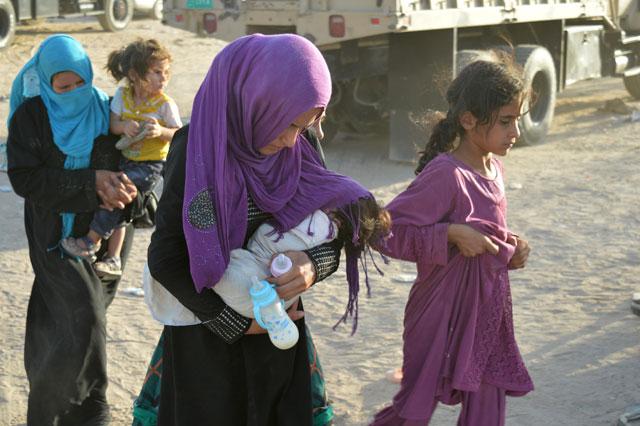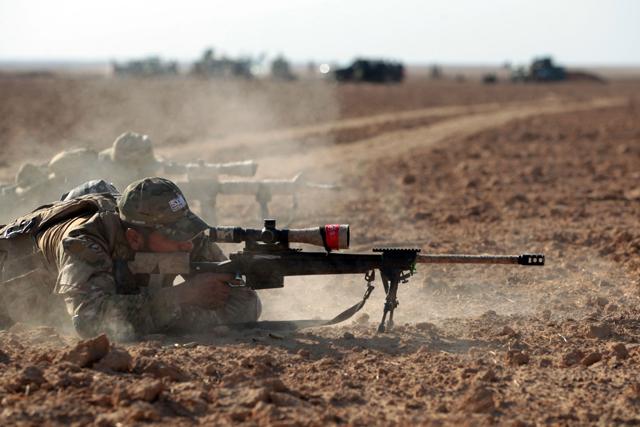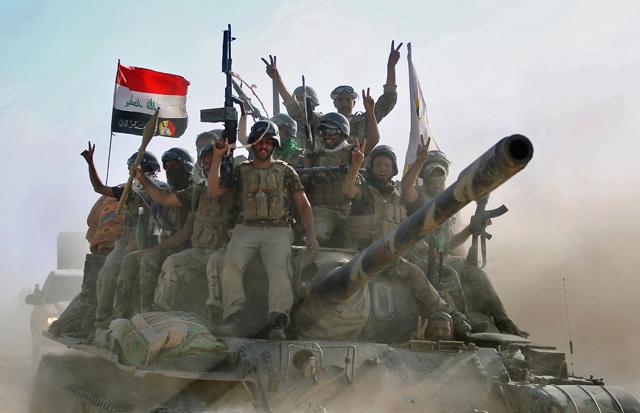You are here
Carter confident US will remain key to anti-Daesh coalition
By AP - Dec 15,2016 - Last updated at Dec 15,2016
LONDON — US Defence Secretary Ash Carter and his British counterpart expressed confidence Thursday that the Trump administration will continue America's role as leader of the international military coalition against the Daesh terror group.
"I do have confidence in the future of the coalition campaign," whose central premise is that local forces must do the fighting, with support from the coalition, Carter said during a news conference. "It's logical. It makes sense," he said, adding that he believes that logic "will recommend itself" to the Trump administration.
Speaking after a meeting of 15 core members of the anti-Daesh coalition, Carter said he intends to share his views on this with his successor, who is expected to be retired Marine Gen. James Mattis.
"Among my recommendations will be the need for the United States to remain actively engaged as leader of this coalition," Carter said. "Our coalition can and, I'm confident, will finish this job together."
The British defence minister, Michael Fallon, speaking alongside Carter, echoed his view.
"We're dealing here with a global threat," he said. "I have no doubt the next administration will step up to its traditional role" as a world leader, Fallon said.
The meeting took place against the backdrop of questions about what Donald Trump's arrival in the White House next month will mean for the coalition's future.
Closing out a nearly two-week overseas trip that included a stop in Iraq, Carter met with his counterparts and got an update from Army Gen. Joseph Votel on the battles to retake Mosul, Daesh's key stronghold in Iraq, and Raqqa, the self-declared Daesh capital in Syria. As head of US Central Command, Votel is the top officer overseeing the counter-Daesh campaign in Syria and Iraq.
The defence officials also discussed doing more to train and equip the kinds of local Iraq and Syrian forces, including police and tribal fighters, that will be needed to hold Mosul and Raqqa once, as expected, Daesh is uprooted from those cities. Daesh has held those centres for more than two years.
Carter said at the meeting's outset that the coalition must remain involved in Iraq even after Daesh is driven from Mosul.
"We'll need to continue to counter not only foreign fighters trying to escape, but also ISIL's [Daesh's] attempts to relocate or reinvent itself," he said.
"To do so, both the United States and the coalition must remain engaged militarily. In Iraq in particular, we must be prepared to provide sustained assistance to the Iraqi security forces to consolidate security over the rest of the country."
The US has about 5,000 troops in Iraq.
But the backdrop to Thursday’s conference was deep uncertainty in London, Berlin and other coalition capitals about the implications for the counter-Daesh efforts of a change in US administrations in January. Trump has criticised President Barack Obama’s approach to fighting the militant group as weak and ineffective, and he has suggested that the US has blindly supported anti-Daesh groups without knowing their true aims.
Among the questions Carter cannot answer: Will Trump withdraw support for US-backed rebel groups in Syria, who have now lost the city of Aleppo? And if he does, will he join forces with Russia? How might such moves affect public support for the anti-Daesh coalition in Germany and elsewhere?
Though Obama has tried to work diplomatically with Russia, Syria ceasefire deals have repeatedly collapsed, with the US accusing Moscow of failing to use its influence to prevent Syria’s President Bashar Assad from violating them. Meanwhile, Russia’s military intervention has succeeded in helping Assad reclaim the upper hand. The US-led coalition has avoided direct military action against Assad’s force, focusing instead on supporting local rebels willing to fight Daesh while coupling that effort with aerial bombing in both Syria and Iraq.
Carter was expected to emphasise to his counterparts at the London conference the prominent role that retired Marine Gen. James Mattis will play as the president-elect’s choice to succeed Carter at the Pentagon. Mattis is well-known and widely admired in Europe, having headed NATO’s Supreme Allied Command Transformation from 2007 to 2009, a role focused on preparing the military alliance for security challenges of the future.
Other countries represented at the conference were Iraq, Australia, New Zealand, Belgium, the Netherlands, Canada, Denmark, France, Germany, Italy, Britain, Norway, Spain and Turkey.
Related Articles
BAGHDAD — Pentagon Chief Ashton Carter said Monday that Washington will deploy 560 additional troops to aid Iraq's fight to retake Mosul fro
QAYARA AIR BASE, Iraq — Iraqi and US-led coalition forces have killed or gravely wounded more than 2,000 Daesh militants in the battle for M
TAL ABTA, Iraq — Iraqi forces on Tuesday recaptured from the Daesh terror group the first three districts of extremist bastion Tal Afar as t



















